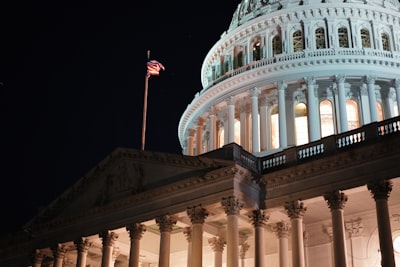Summary
Senate Republicans are racing to pass President Donald Trump's ambitious tax-and-spending bill ahead of the July 4 holiday, despite facing internal divisions and fierce Democratic opposition. The legislation aims to extend Trump's 2017 tax cuts, reduce some other taxes, and boost spending on both the military and border security. However, the bill would also increase the national debt by an estimated $3.3 trillion over a decade, according to the Congressional Budget Office (CBO), and includes significant reductions to Medicaid and SNAP (food assistance). Senate Majority Leader John Thune has acknowledged the uncertainty of passage, as party dissidents object to either the increased borrowing limit or social safety net cuts, and Democrats are combating the bill with procedural and rhetorical tactics.
Analysis
The push to extend and expand Trump-era tax cuts—originally passed in 2017 under the promise of economic stimulation and job growth—remains one of the Republican Party’s signature policy priorities. Yet, the discord among Republican senators highlights a classic clash within the party between fiscal hawks and tax-cut enthusiasts. On one hand, figures like Senator Rand Paul denounce the $5 trillion increase in the debt ceiling as fiscally reckless, while others balk at proposed reductions to programs like Medicaid and green energy initiatives, wary of political backlash or moral consequences.
The Republican leadership’s move to rely on alternative accounting methods—essentially ignoring the extended costs of previous tax cuts—raises questions about transparency and responsible governance. Independent experts, such as those at the Bipartisan Policy Center, have criticized this as budgetary sleight of hand, warning that such practices may erode trust in fiscal policymaking. The CBO’s projection of nearly 12 million more uninsured Americans further intensifies ethical and socioeconomic concerns, especially as the legislation faces accusations from Democrats of prioritizing tax breaks for the wealthy at the expense of vulnerable populations.
Discussion
This legislative battle is a microcosm of enduring debates in American politics: Should the federal government pursue aggressive tax reductions and loosen budget constraints to foster growth, or should it tighten spending and prioritize safety nets even as debt mounts? The framing of the current bill—despite the return of a Trump presidency and Republican congressional control—demonstrates that ideological rifts within parties can be as consequential as those between them.
The debate also exposes the high-stakes strategy of attaching polarizing spending and debt ceiling changes to must-pass legislation, leveraging looming fiscal deadlines (and the specter of default) as negotiation tools. This tactic, while common in recent years, risks political instability and economic volatility, as indicated by international bond investors' apparent wariness. The optics of benefit cuts to Medicaid and SNAP, at a time when many Americans are already strained by healthcare and living costs, could become an explosive campaign issue ahead of the next election cycle.
Crucially, the struggle over this legislative package highlights larger trends: the persistence of deficit-financed tax cuts in U.S. fiscal policy, the declining willingness of lawmakers to reach honest bipartisan compromises, and the growing role of parliamentary maneuvering over substantive debate. It also foregrounds ethical questions: Who should bear the cost of tax cuts—present taxpayers or future generations? Do economic growth arguments justify scaling back support for the most disadvantaged?
As Americans watch the Senate drama unfold, the results could clarify not only the trajectory of Trump’s second-term agenda but also the evolving identity of the Republican Party and the rules of the fiscal game in Washington.

Comments
No comments yet. Be the first to comment!